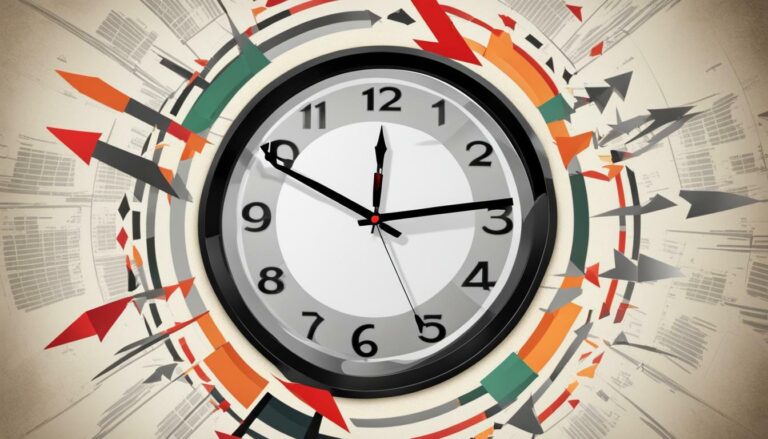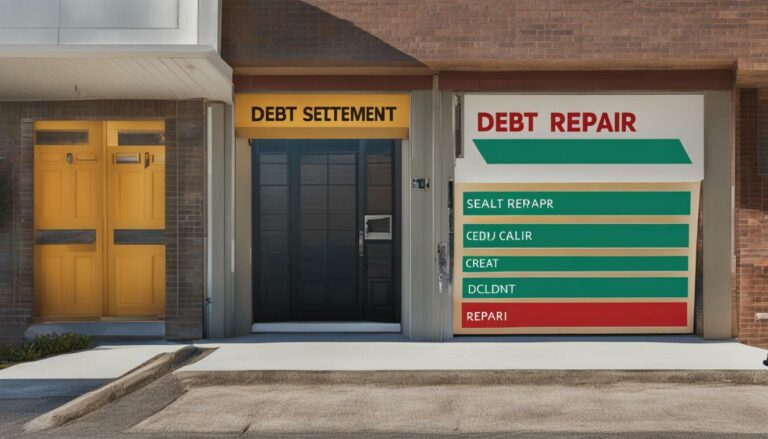Unveiled: Does PayPal Report to Credit Bureaus? Find Out Now!

If you’re wondering whether PayPal reports to credit bureaus and how it can affect your credit, read on to find out the crucial information.
Key Takeaways:
- PayPal Credit does report to credit bureaus, which can impact your credit scores.
- Users have reported seeing PayPal Credit on their credit reports, leading to confusion and potential negative impacts on their scores.
- PayPal started reporting to credit bureaus after switching credit issuers in 2018, with Synchrony Bank now reporting the information.
- Some users claim they were not notified about the change in credit issuers.
- The credit reporting includes information such as late payments and closed accounts.
PayPal Credit Reporting: What You Need to Know
PayPal Credit reporting can have a significant impact on your credit scores, so it’s important to understand how it works and what information is reported. Many users have reported seeing PayPal Credit on their credit reports, which has caused confusion and potential negative effects on their scores. It’s important to note that PayPal started reporting to credit bureaus after they switched credit issuers in 2018, with the new partner being Synchrony Bank.
When PayPal Credit reports to credit bureaus, it includes information such as late payments and closed accounts. This means that if you miss a payment or make a payment late, it can have an adverse effect on your credit score. It’s crucial to maintain a good payment history and meet payment deadlines to avoid any negative consequences.
It’s also worth mentioning that PayPal Credit functions like a regular credit card when it comes to credit reporting. This means that it has the potential to impact your credit scores in the same way as any other credit card. Therefore, it’s essential to manage your PayPal Credit account responsibly and make timely payments to maintain a positive credit history.
Table: Summary of PayPal Credit Reporting
| Key Points | Details |
|---|---|
| Reporting Initiation | Started after PayPal switched credit issuers in 2018, with Synchrony Bank reporting to credit bureaus |
| Information Reported | Includes late payments, closed accounts, and other relevant credit-related data |
| Impact on Credit Scores | Missed or late payments can negatively affect credit scores |
| Comparison to Regular Credit Cards | PayPal Credit functions like a regular credit card in terms of credit reporting |
| Managing Your Account | Responsible payment management is crucial to avoid negative credit score impacts |
In conclusion, understanding how PayPal Credit reporting works and what information is reported is essential for maintaining a healthy credit score. Late payments and closed accounts are included in the reporting, which can have a negative impact if not managed responsibly. Treat your PayPal Credit account like any other credit card, making timely payments and maintaining a good payment history to ensure a positive credit report.
🚨 TUIC Errors + Low Credit Score?
CreditScoreIQ helps you build credit faster by reporting utility bills to all 3 bureaus—while you dispute errors.
Start Building Credit Today →The Switch to Synchrony Bank: An Unnoticed Change
In 2018, PayPal made a switch to Synchrony Bank as its credit issuer, triggering the reporting of PayPal Credit to credit bureaus—a change that went unnoticed by many users. This shift in credit issuers resulted in PayPal Credit information being included in credit reports, potentially impacting users’ credit scores. Unfortunately, some users claim they were not notified about this change, leading to confusion and unexpected effects on their credit.
With Synchrony Bank taking over as the credit issuer, PayPal Credit now reports information such as late payments and closed accounts to credit bureaus. This means that missed or late payments on PayPal Credit can have a negative impact on credit scores, just like with regular credit cards. It is crucial for users to be aware of this and manage their PayPal Credit accounts responsibly to avoid any detrimental effects on their credit history.
Users have different options for managing their PayPal Credit accounts based on their individual financial goals. Some may choose to keep their accounts open to maintain a good credit utilization ratio and length of credit history. Others may decide to close their accounts to eliminate the temptation of accumulating more debt. It is important to weigh the pros and cons of each option and make an informed decision that aligns with your financial objectives.
| Key Takeaways: |
|---|
| 1. In 2018, PayPal switched to Synchrony Bank as its credit issuer, leading to the reporting of PayPal Credit to credit bureaus. |
| 2. Some users claim they were not notified about this change, resulting in confusion and potential negative effects on their credit scores. |
| 3. PayPal Credit now reports information to credit bureaus, including late payments and closed accounts. |
| 4. Missed or late payments on PayPal Credit can impact credit scores, similar to regular credit cards. |
| 5. Users have different options for managing their PayPal Credit accounts, such as keeping them open or closing them based on their financial goals. |
Managing Your PayPal Credit Account
As a PayPal Credit user, understanding how to effectively manage your account can help you navigate the impact it may have on your credit. Whether you’re looking to maintain a positive credit history or make improvements, here are some key considerations when it comes to managing your PayPal Credit account.
- Payment Responsibility: One of the most important aspects of managing your PayPal Credit account is ensuring that you make timely payments. Late payments can have a negative impact on your credit score, so it’s crucial to pay attention to due dates and avoid missing payments. Consider setting up automatic payments to help you stay on track.
- Credit Utilization: Another factor to consider is your credit utilization ratio, which is the amount of credit you’re using compared to your total available credit limit. Keeping your credit utilization below 30% is generally recommended. To manage your PayPal Credit account effectively, aim to use your available credit responsibly and avoid maxing out your limit.
- Account Management: Keeping an eye on your PayPal Credit account is essential. Regularly reviewing your statements and transaction history can help you identify any unauthorized charges or discrepancies. Additionally, it’s important to update your contact information to ensure you receive any notifications or alerts from PayPal regarding your account.
If you’re considering closing your PayPal Credit account, it’s important to weigh the potential impact on your credit. Closing an account can affect your credit utilization ratio and credit history length, which are factors in determining your credit score. Before making a decision, assess your financial goals and determine if closing your PayPal Credit account aligns with your overall credit strategy.
| Pros of Keeping Your PayPal Credit Account Open | Cons of Closing Your PayPal Credit Account |
|---|---|
|
|
Remember, managing your PayPal Credit account responsibly can help you maintain a positive credit history. By making timely payments, managing your credit utilization, and staying informed about your account, you can navigate the potential impact on your credit while enjoying the benefits of using PayPal Credit.
Impact on Credit Scores: Missed Payments and Late Payments
Late or missed payments on your PayPal Credit account can have a significant impact on your credit scores, making it crucial to prioritize timely payments. When you fail to make payments on time, it can result in negative entries on your credit report, which can lower your credit score and make it more challenging to obtain credit in the future.
According to recent reports from PayPal users, late or missed payments on their PayPal Credit accounts have led to adverse effects on their credit scores. These users have experienced the frustration of seeing their credit scores decrease due to payment issues related to PayPal Credit. It highlights the importance of staying on top of your payment obligations to maintain a positive credit history.
To avoid negative consequences, it’s essential to manage your PayPal Credit account responsibly. Ensure that you make all payments on time, as even a single missed payment can have a detrimental impact on your credit score. Setting up reminders or automatic payments can help you stay organized and ensure you never miss a payment deadline.
Table: Late Payment Impact on Credit Scores
| Late Payment | Impact on Credit Scores |
|---|---|
| 30 days late | Minor decrease |
| 60 days late | Moderate decrease |
| 90+ days late | Significant decrease |
Remember, responsible management of your PayPal Credit account is crucial for maintaining a positive credit history. Making payments on time and in full will help you avoid any negative impacts on your credit score. By prioritizing timely payments, you can keep your credit history strong and increase your chances of qualifying for credit in the future.
PayPal Credit vs. Regular Credit Cards
When it comes to credit reporting, PayPal Credit operates similarly to regular credit cards, meaning that its impact on your credit scores can be comparable. PayPal Credit reports your payment history, including late payments and closed accounts, to credit bureaus just like regular credit card issuers. This information can have an effect on your credit scores and overall creditworthiness.
“PayPal Credit functions like a regular credit card and can impact credit scores if payments are missed or made late.”
It’s important to understand that PayPal Credit is not just a service offered by PayPal, but it functions as a line of credit, allowing you to make purchases and pay them off over time. This means that how you manage your PayPal Credit account can have a direct impact on your credit scores, much like with traditional credit cards.
Managing Your PayPal Credit Account
When it comes to managing your PayPal Credit account, you have options. Just like with regular credit cards, you can choose to keep your PayPal Credit account open or close it depending on your financial goals. If you decide to keep it open, it’s crucial to make timely payments and maintain a good payment history to avoid any potential negative impacts on your credit scores.
In addition, responsible payment management is key. Paying your bills on time, in full, and avoiding late payments or missed payments will help you maintain a positive credit history. This applies not only to PayPal Credit but also to any other credit accounts you may have, including regular credit cards.
“PayPal Credit functions like a regular credit card and can impact credit scores if payments are missed or made late.”
| Key Points: | PayPal Credit vs. Regular Credit Cards |
|---|---|
| Similarities | – PayPal Credit reports to credit bureaus, just like regular credit card issuers. |
| – Payment history, including late payments and closed accounts, can impact credit scores. | |
| Differences | – PayPal Credit is a line of credit offered by PayPal, while regular credit cards are issued by various banks and financial institutions. |
| – PayPal Credit is managed through a PayPal account, while regular credit cards have their own separate billing systems. |
Conclusion
Understanding how PayPal reports to credit bureaus and its potential impact on your credit is essential for making informed financial decisions and maintaining a healthy credit profile. PayPal Credit indeed reports to credit bureaus, meaning that your PayPal Credit activity can affect your credit scores. Users have reported seeing PayPal Credit on their credit reports, leading to confusion and potential negative impacts on their scores.
This reporting began after PayPal switched credit issuers in 2018, with their new partner, Synchrony Bank, taking over and starting to report to credit bureaus. However, some users claim they were not notified about this change, which has resulted in additional confusion and potential consequences for their credit scores.
When reporting to credit bureaus, PayPal Credit includes information such as late payments and closed accounts. Therefore, it’s crucial to manage your PayPal Credit account responsibly to maintain a positive credit history. Missing payments or making them late can have a negative impact on your credit scores, just like with regular credit cards. Maintaining a good payment history and meeting payment deadlines are essential to avoid these negative consequences.
Ultimately, you have different options for managing your PayPal Credit account. Depending on your financial goals, you may choose to keep your account open or close it. By understanding how PayPal reports to credit bureaus and the potential effects on your credit, you can make the best decision for your financial well-being.
FAQ
Does PayPal Credit report to credit bureaus?
Yes, PayPal Credit does report to credit bureaus, which can affect credit scores.
Why is PayPal Credit appearing on my credit report?
PayPal Credit started reporting to credit bureaus after switching credit issuers in 2018. The new partner, Synchrony Bank, began reporting account information.
Did PayPal notify users about this change?
Some users claim they did not receive notification of the switch to Synchrony Bank and were surprised to see PayPal Credit on their credit reports.
What information does PayPal Credit report include?
PayPal Credit reporting includes details such as late payments and closed accounts.
How does PayPal Credit impact credit scores?
PayPal Credit functions like a regular credit card, and if payments are missed or made late, it can have a negative impact on credit scores.
What are the options for managing my PayPal Credit account?
You have the option to keep your PayPal Credit account open or close it, depending on your financial goals and circumstances.
Source Links
- https://fortune.com/2020/03/13/paypal-credit-score-drop-synchrony-bank-synchb-ppc/
- https://www.creditrepair.com/blog/finance/does-paypal-affect-credit-score/
- https://www.creditsage.com/education/does-paypal-credit-report-to-credit-bureaus
Ready to Improve Your Credit?
Disputing TUIC errors is step one. Step two? Boost your score by reporting utility payments with CreditScoreIQ.
Get Started Now (Only $1 Trial) →3-bureau reporting • $1M identity insurance • Dark web monitoring



